Learning Time – Sequencing Everyday Events
Time
Teaching Time & Sequencing Everyday Events? Check out this MASSIVE library of sequencing activities.
Download Sequencing cards and worksheets to help teach Kindergarten, EYFS and Preprimary students to compare and order the duration of events of time.
The definition of sequencing is the ability to understand how a series of events occur in order and the approximate duration of those events. e.g. duration might be, which takes longer, getting dressed or walking/driving to school?
In this post, you will find engaging, educational activities that are perfect for your non-standard measurement math centres and teaching Preschool, Kindergarten and pre-primary students to sequence.
Understanding Time Concepts
What is Time?
Time is a fundamental concept that governs our daily lives. It is a measure of the duration between events, allowing us to understand the sequence and progression of activities. Time is often divided into units such as seconds, minutes, hours, days, and years, which help us make sense of the world around us. Understanding time concepts is essential for students to develop a sense of organization, punctuality, and responsibility. By grasping how long everyday events take, students can better manage their schedules and appreciate the importance of time in their daily routines.
What is learning time and Sequencing in Early Childhood Education?
In the Early years learning time and sequencing includes many concepts including:
- First and Last
- First, next, then, finally
- Before, After
- day, night, daytime, morning time, lunchtime, dinner time, bedtime, nighttime
- to make judgements about how long everyday events take and then compare 2 events to decide which takes longer/shorter amount of time (not using a clock)
- Comparing & Ordering the steps involved in 3, 4, 5, 6 step activities
- Link daily activities to day and night
- Sequence different but obvious ages of people, e.g. baby, toddler, child, teenager, parent, grandparent
- Order the sequence of simple well know stories and nursery rhymes, e.g. fairytales
- Answer the questions:
- “What happened?”
- “What happens first?”
- “What happens next?”
- “What happens last?”
- What happened before ____?”
- “What happened after ___?”
Related Post: How To teach Non-Standard Measurement
Learning Time – Sequencing Everyday Events
Teaching Time & Sequencing Everyday Events? Check out this MASSIVE library of sequencing activities.
Download Sequencing cards and worksheets to help teach Kindergarten, EYFS and Preprimary students to compare and order the duration of events of time.
The definition of sequencing is the ability to understand how a series of events occur in order and the approximate duration of those events. For example, duration might be, which takes longer, getting dressed or walking/driving to school? Using familiar activities and familiar events can help students relate these concepts to their everyday lives.
In this post, you will find engaging, educational activities that are perfect for your non-standard measurement math centres and teaching Preschool, Kindergarten and pre-primary students to sequence.
Explore tags
More Time Activities
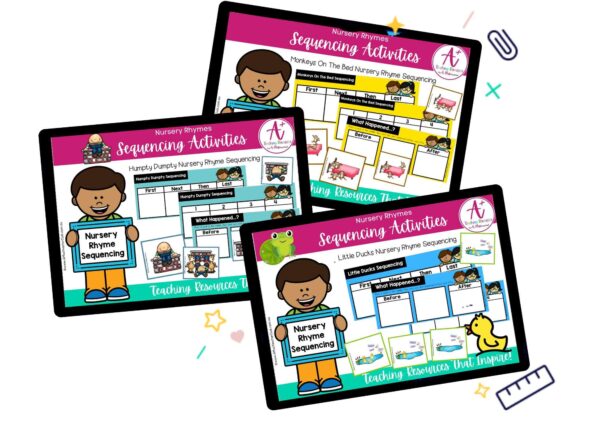
Classroom Themes - Nursery Rhymes Sequencing
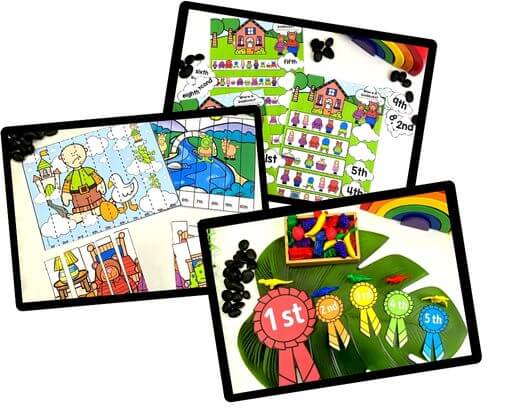
Ordinal Numbers - Fairytale Theme
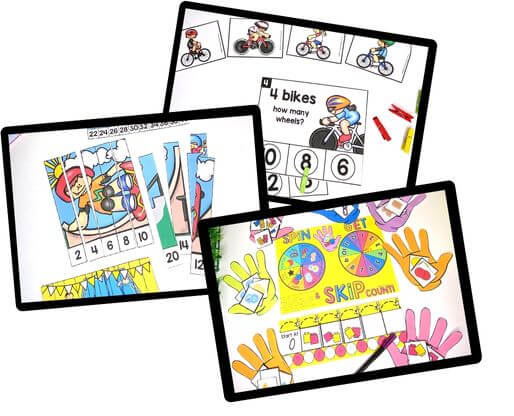
Skip Counting by 2
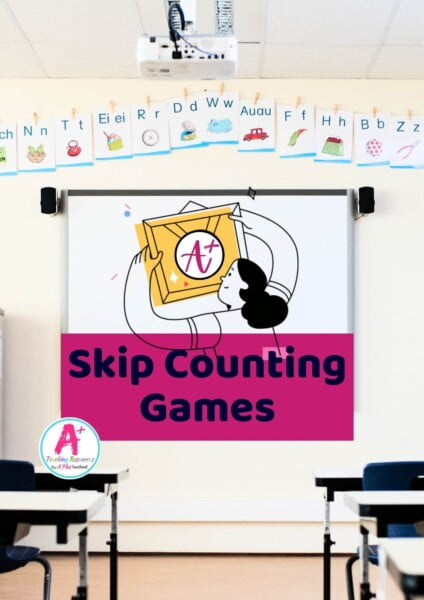
Explore Our Skip Counting Collections
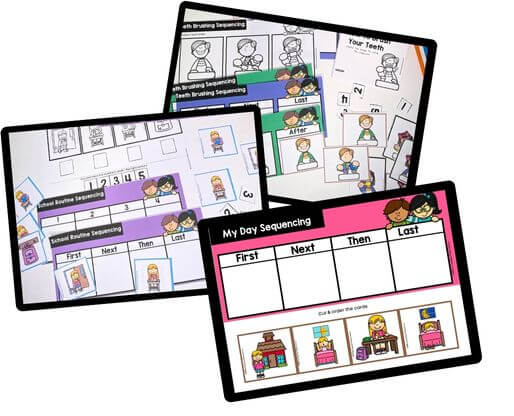
Time - 4 Step Sequencing
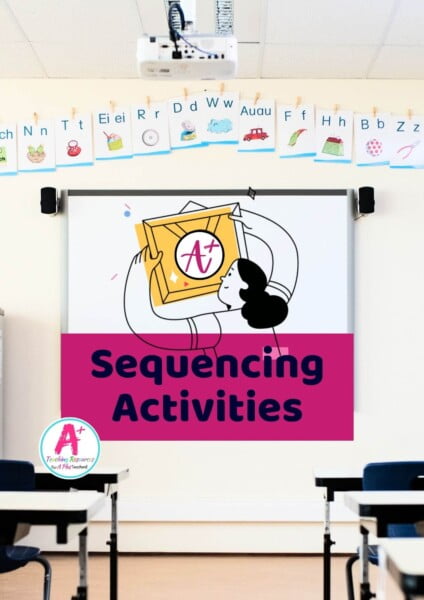
Sequencing
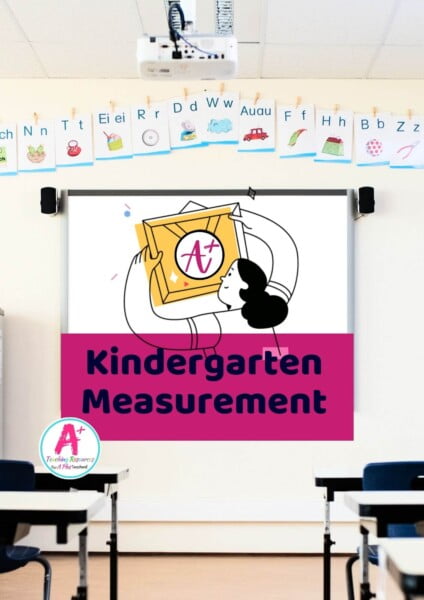
EYFS Non-Standard Measurement
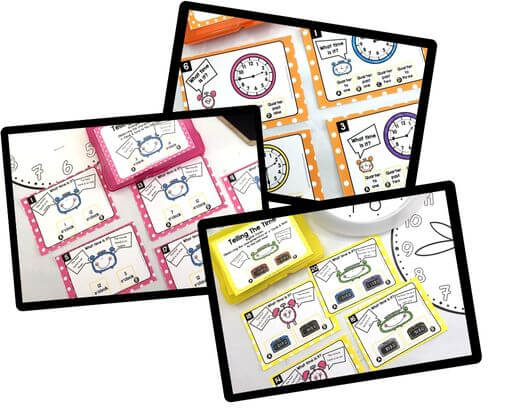
Maths Task Cards - Time
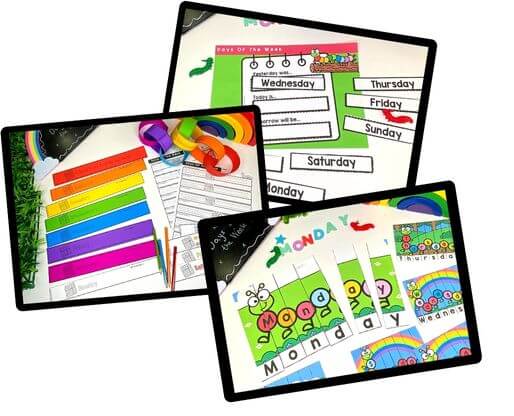
Time - Days of the Week
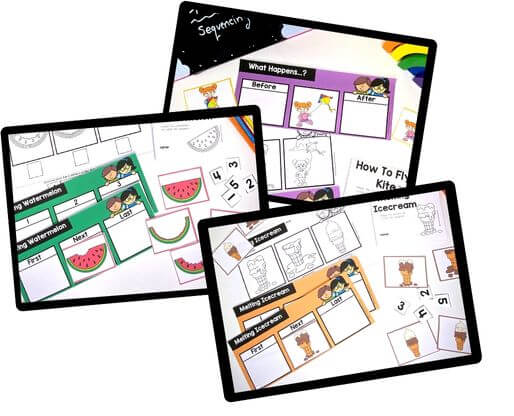
Time - 3 Step Sequencing
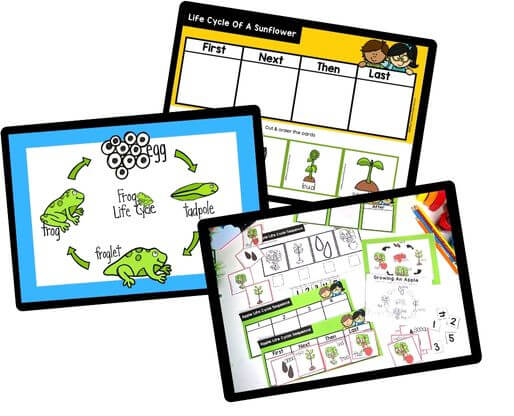
Sequencing - Life Cycles
Can't find what you're looking for?
Send us a request! Use this form to request a resource. Please give details of the learning area, topic, year level, curriculum links. We’ll be happy to take a look to see if we can fit it in. Unfortunately a request does not guarantee we will be able to make it!
"*" indicates required fields
